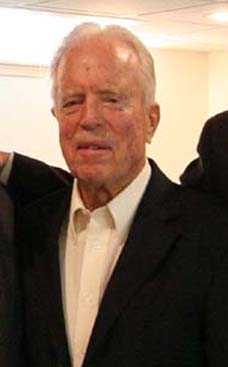
Leadership and support from the top, including the personal support of Peace Crops Director Ronald Tschetter, were critical to getting the agency engaged in business changes required under the new statutory mandates. Tschetter, who comes from the financial services industry, has consistently espoused the agency’s fiscal responsibility as a top management priority. Our unqualified opinion, with no material weaknesses noted, comes after major resource management changes. The Office of the Chief Financial Officer was reorganized functionally, with standard positions, to more closely reflect private-sector practices and ease personnel transition under the five-year rule. A global financial management system, fully integrating financial procedures from purchase requisition to payment, was developed, implemented and certified, connecting internal staff throughout the world, and automating transactions with business partners.
External auditors rendered an unqualified opinion — a clean audit — on the agency’s financial statements for fiscal 2007
Commentary: Peace Corps overcomes unique challenges
By GEORGE SCHUTTER
February 11, 2008
The Peace Corps is an exceptional federal agency, both in its unique mission and organizational structure. Since its creation in 1961 by President Kennedy, the agency has sent more than 190,000 Americans to serve other nations. In October, the agency reached a 37-year high in the number of volunteers. More good news followed in November as external auditors rendered an unqualified opinion — a clean audit — on the agency’s financial statements for fiscal 2007.
The Peace Corps has more than $330 million in financial resources. Eight thousand Americans serve as Peace Corps volunteers in 74 developing countries. Operating around the world brings distinctive resource management challenges. As the only agency with a general five-year limit on employment, these challenges are exacerbated by continuous personnel turnover. Supporting the volunteers, the agency employs 1,100 direct hires and 3,000 contractors.
In 2002, Congress passed the Accountability of Tax Dollars Act placing a new audit requirement on several agencies. As a result, the Peace Corps’ financial statements and practices have been subject to annual audits since 2003 by an independent external auditor. The audits are similar to the highly detailed reviews and internal control compliance imposed on private-sector organizations under the Sarbanes-Oxley Act. In 2003, Peace Corps finances were so complex that the agency was unable to even produce financial statements let alone be audited.
After a complete overhaul of resource management policy, Peace Corps received its unqualified, or “clean,” financial statement audit opinion from its external auditors. The external auditors examined and analyzed Peace Corps’ fiscal 2007 financial statements.
Leadership and support from the top, including the personal support of Peace Crops Director Ronald Tschetter, were critical to getting the agency engaged in business changes required under the new statutory mandates. Tschetter, who comes from the financial services industry, has consistently espoused the agency’s fiscal responsibility as a top management priority.
Our unqualified opinion, with no material weaknesses noted, comes after major resource management changes. The Office of the Chief Financial Officer was reorganized functionally, with standard positions, to more closely reflect private-sector practices and ease personnel transition under the five-year rule. A global financial management system, fully integrating financial procedures from purchase requisition to payment, was developed, implemented and certified, connecting internal staff throughout the world, and automating transactions with business partners.
Budget, financial and accounting procedures were modified, streamlined and re-engineered. Updated procedures and policies were documented to ensure standardization of the hundreds of thousands of annual transactions throughout the organization. Governance boards were initiated to include a senior assessment team to review and monitor business risks and internal controls.
Financial staff working collaboratively to review updated procedures with the external and inspector general auditors was also a key to success. Great credit is due to Peace Corps’ finance and administrative staff worldwide who completely redefined their business practices. Through their hard work and long hours, they embraced our internal changes and greatly contributed to this financial success.
Looking forward, the Peace Corps will expand internal control testing, strengthen documentation for financial functions, focus on financial management training for staff, and continue to hire and retain talented staff.
Developing nations will be challenged in the years ahead by demands for improved information technology, agriculture, education, sanitation, environmental practices, health management and other areas where the Peace Corps is uniquely positioned to provide support. In order to provide this support, the Peace Corps will continue to maximize its use of every dollar; the unqualified opinion is an indicator that we do. å
George Schutter is the chief financial officer of the Peace Corps.









